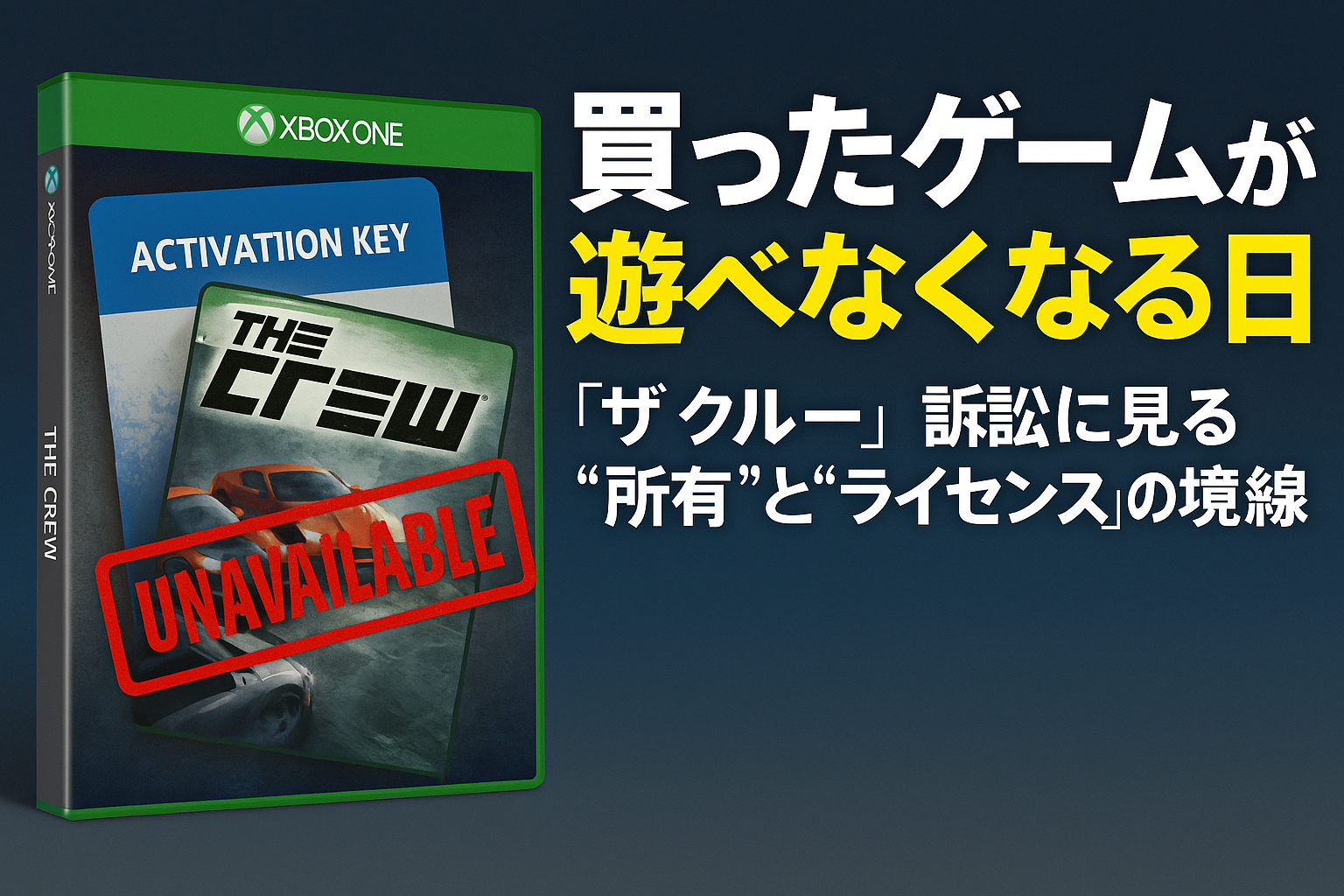At the end of 2024, a lawsuit emerged that sent ripples through the gaming industry. Two users filed a suit against Ubisoft over the discontinuation of its always-online racing game The Crew. The core issue is clear: a discrepancy between the users’ belief that they had purchased the game, and Ubisoft’s assertion that it merely granted them limited access rights.
What Does It Mean to “Buy” a Game?
The plaintiffs argue that when they purchased the physical game package or an activation code, they believed they were buying the right to play the game forever. This belief may not have been unfounded, especially since some activation codes had expiration dates as far off as the year 2099.
Ubisoft, on the other hand, maintains that the purchase of a game does not equate to “permanent ownership,” but rather constitutes a limited license to access the game under certain conditions. These license agreements are often buried in user terms and conditions, making them easy for players to overlook.
Is California Law the Key?
The lawsuit cites California’s False Advertising Law, Unfair Competition Law, and regulations related to gift cards. Under state law, gift cards are considered valid indefinitely—leading plaintiffs to argue that activation codes with no expiration date should be treated similarly.
In this way, the lawsuit has grown into something larger than just a case about a game shutdown. It now touches on legal interpretations, advertising practices, and the trust between companies and their users.
End of Service and the Issue of “Digital Legacy”
In today’s digital age, the risk that purchased digital content may become unusable in the future is a common concern for all users. Especially with online-only games, once the servers are shut down, playing the game often becomes entirely impossible.
Ubisoft has since revealed that it is considering adding offline modes to future titles like The Crew 2 and The Crew: Motorfest—an indication that this lawsuit is already having an impact on the industry.
Conclusion: What This Lawsuit Asks of the Gaming Industry
More than the outcome itself, this lawsuit challenges the gaming industry to reconsider how it communicates with users about what it means to “buy” a game, and how services should be handled once they end.
Creating an environment where players feel they’re paying for something they truly own is essential for building long-term trust. Platforms like Steam have already begun to introduce clearer license notices, marking a step toward greater transparency across the entire industry.

